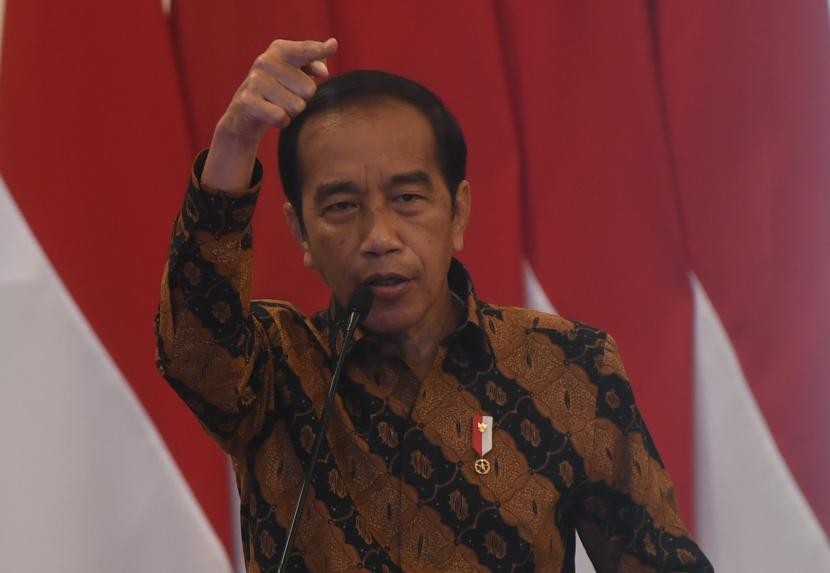REPUBLIKA.CO.ID, KARAWANG -- President Joko Widodo (Jokowi) lead the inauguration of South Korea's Battery and Electric Vehicle Ecosystem in Karawang New Industry City (KNIC), Karawang Regency, West Java, Wednesday (3/7/2024).
In his speech, Jokowi confirmed a new chapter for Indonesia had begun. It was a historic event reflecting Indonesia's commitment to becoming a global player in the electric vehicle (EV) industry. Jokowi explained that Indonesia has abundant natural resources.
Yet decades have always been exporting raw materials. As a result, the material is getting thinner.
“But now with the construction of the smelter, the construction of electric vehicle battery cells, we will become a global player in the supplay chain for electric vehicles,” Jokowi said.
According to him, Indonesia now has the first and largest EV battery cell factory in Southeast Asia. Jokowi is optimistic that Indonesia can continue to be competitive at the forefront. The reason is, our country has nickel, bauxite, and copper mines.
The car factory is also in Indonesia. Integrated in an ecosystem of the electric car industry.
“Who can stop us if the conditions are competitive like that,” Jokowi said.
He valued the investment of Rp 20 trillion for Hyundai's car plant. Then green packaging is an integrated electric battery ecosystem, namely Hyundai LG Indonesia (HLI) Green Power consortium. The investment value is Rp 160 trillion which will be completed gradually.
“Hopefully this marks the further improvement of relations between the Republic of Korea and Indonesia. I think that's what I want to say, by saying business today I inaugurated the factory and ecosystem of South Korean batteries and electric vehicles in Indonesia, thank you,” said the former governor of DKI Jakarta.
On a similar occasion, Jokowi praised the courage of Hyundai Motor Group Chairman Euisun Chung. The last so-called figure nevertheless executed this great project even under very challenging conditions. A few years ago, the Covid-19 pandemic hit the world.
In his statement, Chairman Chung alluded to the shared vision between Indonesia and Hyundai for the future of the automotive industry. There is a commitment from all parties involved to realize this vision.
“Today we gather to celebrate Kona Electric's latest production here. I am very proud that this Indonesian-made Kona Electric is also powered by batteries produced in Indonesia. As a business cooperation between Hyundai and LG energy solution,” Chung said.
Completion of battery cell factory in Indonesia, giving pride to all. According to him, it is a testament to the progress achieved from this joint partnership. He insists, most importantly, Hyundai Motor Group and Indonesia are shaping the future of the EV ecosystem not only in Asia but also around the world.
PT HLI Green Power manufactures battery cells. The experts who produce are from Indonesia. They get first-hand knowledge from South Korea and China.
The battery for Hyundai's Kona electric car, equipped with 216 units of battery cells. It consists of various components including the battery module, the cooling system, and the control unit that become a single unit for the system battery unit. The resulting voltage is about 400 volts.
As already alluded to above, Hyundai Kona Electric uses domestically made batteries. The car has the longest mileage in its class, which is more than 600 km.
“Today, Indonesia is at the center of the future, more than ever. Hyundai is confident that the activation of the electric vehicle industry in Indonesia will provide new economic opportunities for the whole of Southeast Asia,” Chung said.
He understands that President Jokowi's target to produce electric vehicles in Indonesia is around 600,000 units by 2030. According to him, that figure is a very reasonable target. Indonesia has the largest automotive market in Southeast Asia.
“Vehicles manufactured and sold here are the standard for all regions in the Southeast Asia region with 700 million potential customers,” Chung said.


